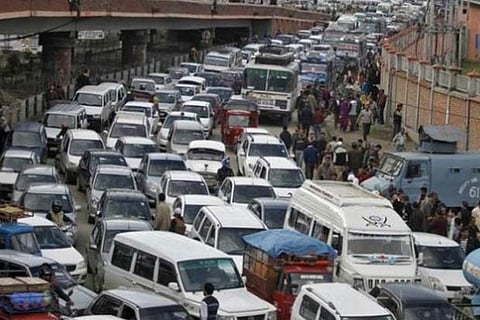

New Delhi
In India, carpooling and ride-sharing can improve urban mobility and global online cab-hailing app Uber has hit the ground running on this count. For a country that considers car ownership as a status symbol, it has been interesting to note that people are finally adapting to the idea of sharing rides.
The San Francisco-headquartered firm launched UberPOOL - a service that enables people going the same way at the same time to share their journey - in Bengaluru in September 2015. Thereafter, it was introduced in Delhi in December 2015, followed by Hyderabad, Kolkata, Mumbai and, more recently, in Chennai.
“The response we have got on UberPOOL has been phenomenal so far and is fast-emerging as the most preferred mode of transport for riders in India. More than 31 per cent of rides in Delhi are on UberPOOL and over 20 per cent of the UberPOOL rides are in the remaining five cities - Bengaluru, Hyderabad, Kolkata, Mumbai and Chennai,” Apurva Dalal, Head of Engineering, Uber India, told IANS.
“Since the launch of UberPOOL in the country, the company has partnered with citizens in saving over 32 million km of vehicle-travel, over 1.5 million litres of fuel, reducing CO2 emissions worth 3.5 million kg,” Dalal claimed.
UberCOMMUTE - the ride-sharing feature for those who embark on long rides on a daily basis to share journey with a fellow commuter headed in the same direction and recoup the costs - is also picking up.
“If we aspire for every journey in India to be a shared journey, we need to use private cars for the public good. How do we encourage people who own a car to carpool more often with Uber technology making the experience seamless?” asked Dalal who has previously led the Google India Development Centre. There are over 2.7 million cars in Delhi but less than 100,000 are eligible to use ride-sharing apps.
“Similarly, we have hundreds of thousands of riders in Mumbai, Bengaluru, Hyderabad, Kolkata and Chennai who can be encouraged to share their rides with appropriate government support for this,” the Uber executive says. More cars that are eligible for ride-sharing and more passengers per car is the only way to get rid of the congestion on city roads. “Cities suffer from some of the worst congestion in the world. On an average, we have 1.2 people in one car at any given point, with a low average asset utilisation rate of 5 pc. There is an appetite for more options for reliable and efficient ways to get to and from work.”
Uber founder and CEO Travis Kalanick, who was recently in India, also spoke at length about how to decongest mega cities in the country. “Our journey in India began 3 years ago with Bengaluru; the growth since then has been phenomenal. We started with three employees and are now a 700-people team operating across 29 cities with over 400,000 driver-partners on our platform, of which 50 per cent are active at any given point in time,” Dalal informed.
Visit news.dtnext.in to explore our interactive epaper!
Download the DT Next app for more exciting features!
Click here for iOS
Click here for Android